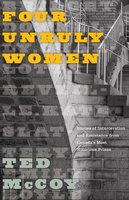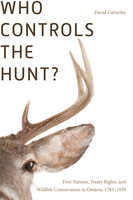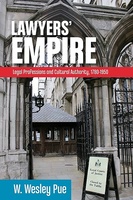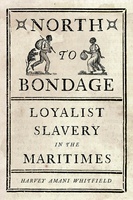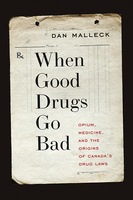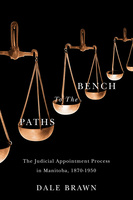Four Unruly Women
Stories of Incarceration and Resistance from Canada’s Most Notorious Prison
Filled with stories of pain, regret, and resistance, this chilling account of how four women survived their time at Kingston Penitentiary stands as an indictment of the idea that prisons and punishment are society’s answer to crime.
Who Controls the Hunt?
First Nations, Treaty Rights, and Wildlife Conservation in Ontario, 1783-1939
Tracing the connections between colonialism and the early conservation movement in Ontario, Who Controls the Hunt? examines the contentious issue of treaty hunting rights and the impact of conservation laws on First Nations.
Claire L’Heureux-Dubé
A Life
Going beyond jurisprudential legacy to provide rich sociocultural context, Claire L’Heureux-Dubé is an exploration of the controversial and historically transformative career of the first Quebec woman on Canada’s Supreme Court.
Disabling Barriers
Social Movements, Disability History, and the Law
In Disabling Barriers, legal scholars, historians, and disability-rights activists encourage us to rethink our understanding of both the systemic barriers disabled people face and the capacity of disabled people to effect positive societal change.
Lawyers’ Empire
Legal Professions and Cultural Authority, 1780-1950
In approaching the history of the legal professions through the lens of cultural history, Wes Pue locates the legal profession within England and its empire, supplementing and disrupting established narratives of professionalism as proffered by lawyers and their critics.
Fragile Settlements
Aboriginal Peoples, Law, and Resistance in South-West Australia and Prairie Canada
Fragile Settlements compares the historical processes through which British colonial authority was asserted over Indigenous people in southwest Australia and prairie Canada from the 1830s to the early twentieth century.
North to Bondage
Loyalist Slavery in the Maritimes
The first history of black slavery in the Maritimes, North to Bondage is a startling corrective to the enduring myth of Canada as a land of freedom at the end of the Underground Railroad.
When Good Drugs Go Bad
Opium, Medicine, and the Origins of Canada’s Drug Laws
This intoxicating look at the history of drug regulation in Canada reveals how a variety of social and political forces converged at the turn of the twentieth century to transform both public attitudes toward, and access to, narcotics.
Grit
The Life and Politics of Paul Martin Sr.
Grit examines the remarkable life and political career of Paul Martin Sr., a liberal reformer and cabinet minister from 1945 to 1968, who championed health care and pension rights, new meanings for Canadian citizenship, and internationalism in world affairs.
Paths to the Bench
The Judicial Appointment Process in Manitoba, 1870-1950
A close study of the judges appointed in early 20th-century Manitoba, revealing Canada’s highly political judicial appointment process.

